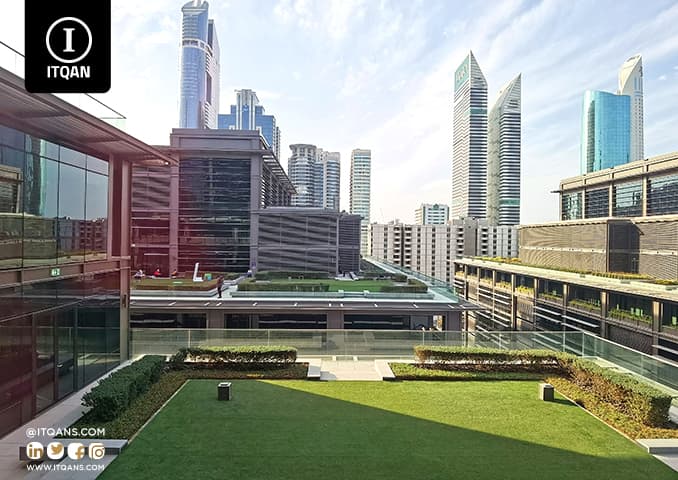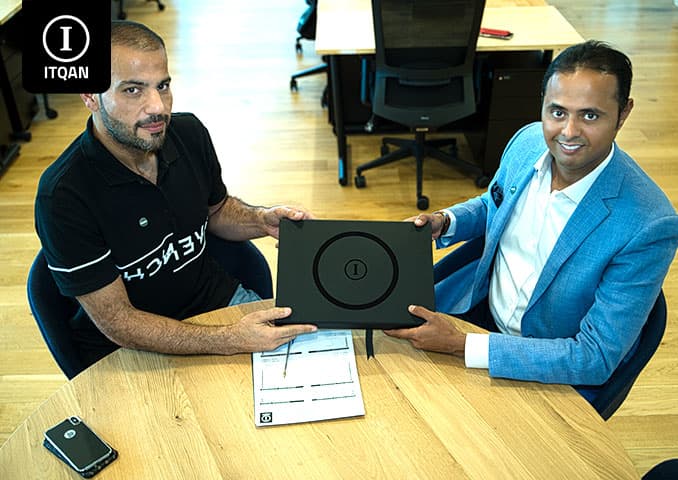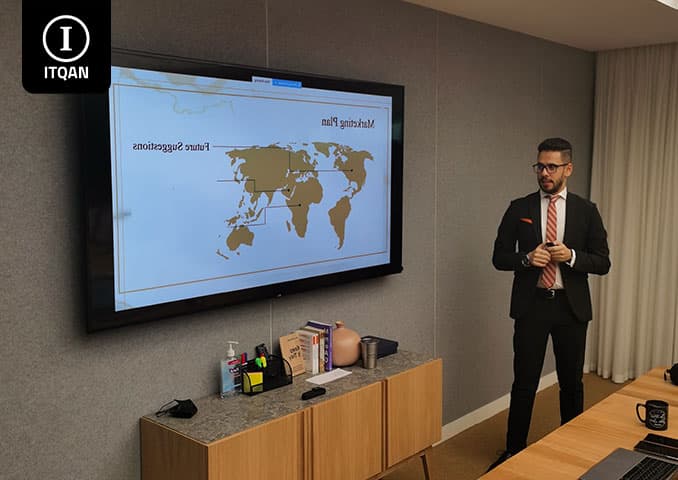The UAE’s free zones are a preferred destination for businessmen and investors from around the world, thanks to the many benefits they offer, including tax exemptions and full foreign ownership. However, understanding the costs of setting up a business in these zones is an essential step to ensuring the success of the project and its efficient management. Costs vary depending on the type of company, the free zone chosen, and the type of business activities you intend to undertake. These costs will generally include registration fees, office rental costs, and licensing fees, in addition to some other administrative expenses. In this article, we will take a detailed look at the factors that affect the costs of setting up a business in the free zones , and provide a comprehensive overview that will help investors make informed decisions when planning their new projects.

جدول المحتوى
ToggleCosts of establishing a company in the free zone
When considering setting up a company in a UAE free zone, there are several key factors that affect the costs of incorporation, including:
- Company type and business activities: Determining the type of company (such as a limited liability company or a joint stock company) and the type of business activities you will be conducting will greatly affect costs. Some activities may require additional licenses or approvals.
- Location and choice of free zone: Fees and costs vary from one free zone to another. Each free zone offers different incentives and benefits, so choosing the right one can impact your overall costs.
- Licensing and Registration Fees: These include fees related to obtaining a business license and registering the company. These fees may include the cost of issuing the license, registering the trade name, and other costs related to legal and administrative procedures.
- Office Rental Costs: Office rental costs vary depending on the size of the office and its location within the free zone. Some free zones offer virtual offices at lower rates, while others require you to rent physical space.
- Support Services and Facilities: Some free zones provide additional services such as secretarial services, internet services, and mail services. These costs should be taken into account when calculating the total costs.
- Administrative and operating costs: These costs include salaries, insurance, and banking. You may also need to hire legal or accounting advisors, which can add to the overall cost.
- Taxes and Government Fees: In some cases, there may be additional government fees or taxes depending on the type and size of the business.
- Understanding these factors will help estimate the total cost of setting up a company in the free zone, contributing to accurate financial planning and ensuring the success of the project.
Free Zones in Dubai
Dubai’s free zones are among the world’s most prominent destinations for attracting investment and business, thanks to the competitive advantages they offer investors. These zones offer many benefits, including complete exemption from corporate and profit taxes, in addition to complete freedom in foreign ownership of companies by 100%. They also contribute to facilitating administrative procedures, which enhances the efficiency of the investment process. Free zones also provide an advanced business environment, equipped with modern facilities and distinctively designed offices, which contributes to raising productivity and providing growth opportunities. These zones allow investors to access new markets thanks to Dubai’s strategic location that links the East and the West. Among the famous free zones in Dubai are Jebel Ali Free Zone and Dubai Internet City, which provide excellent infrastructure and integrated support services. Thanks to these advantages, Dubai’s free zones are an ideal choice for companies wishing to expand and establish their operations in an advanced and thriving business environment.
Conditions for establishing a company in the free zone
Establishing a company in the Dubai Free Zone requires compliance with a number of basic conditions that vary slightly from one free zone to another. However, the main conditions are generally similar, and they are:
- Determine the type of company: You must determine the type of company you want to establish, such as a limited liability company or a joint stock company. This choice depends on the business activities and investment objectives.
- Submitting a license application: An application for a trade license is required from the authority supervising the free zone. The application usually includes details of the type of activity, organizational structure, and information about shareholders and directors.
- Preparing legal documents: Legal documents must be submitted, including the articles of association and bylaws, as well as passports and visas for the founders and directors.
- Choosing a location: It requires choosing an office or commercial space in the free zone. Options vary from virtual offices to physical offices, depending on the company’s needs.
- Providing capital: In some free zones, it may be necessary to deposit a specific amount of capital in a bank account, in order to ensure that the company is able to meet its financial obligations.
- Commercial Registration: Requires registration in the commercial register of the free zone, which includes paying the prescribed fees and completing the administrative procedures.
- Compliance with local laws: All local laws and regulations applicable in the free zone must be complied with, including environmental and health laws.
- Obtaining Visas: Residence visas are required for employees and managers, according to the number of visas allowed based on the size of the company and its office.
- Compliance with Free Zone Requirements: Some free zones may impose additional requirements related to specific business activities, such as activity-specific licensing requirements. Be sure to review the specific requirements of the free zone in which you intend to operate to ensure full compliance and successful completion of the incorporation process.
Commercial license to establish a company in the free zone
A trade license is one of the basic requirements for establishing a company in a free zone, and it is a legal document that allows the company to practice its commercial activity legally within the specified scope. To obtain a trade license in the free zones of Dubai, the following steps must be followed:
- The type of license that suits the company’s activity must be determined, such as a commercial, industrial, or service license. This depends on the type of activity the company intends to carry out.
- An application for a commercial license must be submitted to the relevant authority in the free zone. The application includes information about the company, the type of activity, and data about the founders and shareholders.
- Preparing and submitting a set of necessary documents, including the company’s articles of association and memorandum of association. Passports of the founders and directors.
- Paying the fees required to obtain a commercial license, which vary according to the type of license and the type of activity.
- After submitting the application, the responsible authority in the free zone reviews and evaluates the documents. Interviews or providing additional information may be required.
- After approval of the application, a commercial license is issued, which is usually granted for a specified period of time (such as one year) and can be renewed upon expiration.
- A trade license is an essential document to legitimize business operations within the free zone, and is necessary to open bank accounts, sign contracts, and conduct business legally.
The importance of establishing a company in the free zone
Establishing a company in a free zone offers many benefits that make it an attractive option for investors and businessmen. Among the importance of establishing a company in a free zone:
- It allows investors to own the company 100% without the need for a local partner, providing complete flexibility in management and decision-making.
- Free zones offer complete exemptions from corporate tax and VAT, reducing operating costs and increasing company profitability.
- Free zones simplify company establishment procedures and reduce bureaucracy, which contributes to the speed of starting and sustaining businesses.
- Dubai’s free zones provide a strategic location that connects the markets of the East and the West, enhancing international trade opportunities and providing easy access to new markets.
- Free zones provide advanced infrastructure including offices, warehouses, and logistics facilities, which contribute to achieving operational efficiency for companies.
- Free zones allow for the diversification of business activities and allow companies to conduct several types of activities under one license.
- Free zones offer a range of support services such as visas, secretarial services, and marketing, making it easier to manage day-to-day business.
- Some free zones offer additional incentives such as financial facilities, investment support, and training programs, which enhance the business environment and encourage investment.
- Free zones provide protection for intellectual property rights, keeping companies’ innovations and products from infringement.
- Establishing a company in a free zone is a strategic investment that provides companies with a favorable business environment and enhances their growth and expansion in the global market.
In conclusion, setting up a company in a Dubai free zone is a smart strategic move for investors and entrepreneurs who want to benefit from the excellent business environment these areas offer. With tax exemptions, full foreign ownership, and easy incorporation procedures, free zones offer valuable opportunities for growth and expansion. The strategic location and advanced infrastructure enhance companies’ ability to access global markets efficiently. In addition, integrated support services facilitate day-to-day operations, allowing business owners to focus on achieving their strategic goals. Understanding the benefits and requirements of setting up a company in a free zone can help in making informed investment decisions and ensure sustainable success in the competitive business world.
Frequently asked questions about establishing a company in the free zone
What documents are required to establish a company in the free zone?
Essential documents include the company’s memorandum and articles of association, passports of the founders and directors, proof of address, and business plan. Documents may vary depending on the type of company and free zone.
Can foreigners own 100% of a company in the free zones?
Yes, in most free zones in Dubai, foreigners are allowed to own 100% of companies without the need for a local partner.
What are the costs associated with setting up a company in the free zone?
Costs include licensing fees, office rent, registration fees, and administration costs. These costs vary depending on the type of company and the location chosen.
Does the company need a physical office in the free zone?
Most free zones require office or commercial space, but some zones offer virtual office options at lower prices.


















